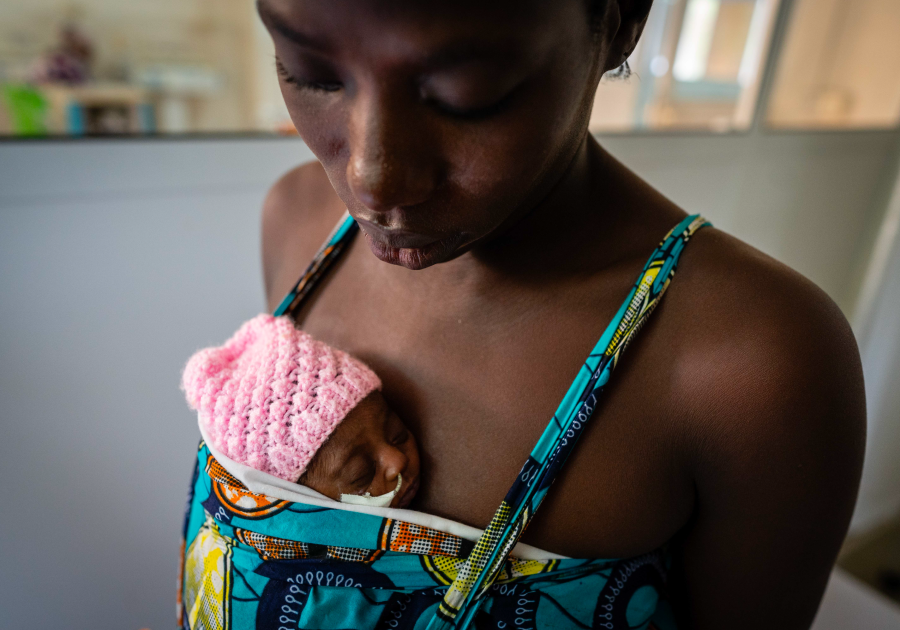Maternal and Newborn Health Research in The Gambia: Paving the way for a better healthcare system
10 July 2024 London School of Hygiene & Tropical Medicine London School of Hygiene & Tropical Medicine https://lshtm.ac.uk/themes/custom/lshtm/images/lshtm-logo-black.png
The newborn mortality rate is also high, with 29 deaths per 1000 live births. In response to this, the MRC Unit The Gambia at the London School of Hygiene & Tropical Medicine (MRCG at the LSHTM), in collaboration with the Ministry of Health (MoH), held a workshop on October 24th and 25th, 2023, to identify national maternal and newborn health (MNH) research priorities.
The workshop was a collaborative effort, bringing together forty-six stakeholders, including representatives from the Ministry of Health, policymakers, academics, researchers, clinicians, public health practitioners, and donors. This collective gathering aimed at identifying gaps and challenges in healthcare delivery for mothers and babies in The Gambia, and to prioritise research questions that could improve health outcomes, emphasising the shared responsibility in addressing these health issues.
The report "Maternal and Newborn Health Research in The Gambia: Report on the Workshop to Identify National Maternal and Newborn Health Research Priorities" provides detailed findings from the workshop. It presents a priority list of maternal and neonatal health research questions that address mother and child health related issues in The Gambia, focusing on health systems and implementation research questions.
These actionable priorities, such as better care during pregnancy, and better postnatal care for women and newborns, requiring urgent attention and action, aim to guide policymakers, healthcare professionals and researchers in improving maternal and newborn health outcomes and reducing mortality rates nationwide.
Dr. Uduak Okomo, Maternal and Newborn Health Research Coordinator at MRCG highlighted that “there is increasing public concern about the quality of obstetric care in public health facilities, and the government is dedicated to reducing maternal and newborn death. However, the progress in reducing mortality is insufficient to meet the SDG 3 targets. Due to limited resources, it is essential to prioritise key areas to speed up implementation and guide the research and development of effective interventions.”
These priority areas are crucial for coordinating efforts and resources to improve maternal and newborn health outcomes significantly.
"We are focused on ensuring that every mother and newborn receives the highest standard of care, irrespective of their background or circumstances. By prioritising and implementing research-based interventions, we aim to address many of the critical challenges and disparities in healthcare," stated Dr. Momodou T. Nyassi, Director of Health Services at the Ministry of Health.
The report demonstrates our continued collaboration with the Government of The Gambia to strengthen the country’s health care system and commitment to advancing positive health outcomes in the region.
LSHTM's short courses provide opportunities to study specialised topics across a broad range of public and global health fields. From AMR to vaccines, travel medicine to clinical trials, and modelling to malaria, refresh your skills and join one of our short courses today.